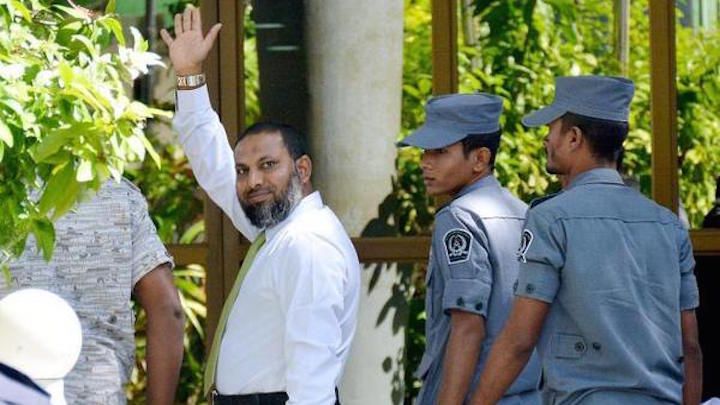Imran asks for change of judge in terrorism trial
Sheikh Imran Abdulla, the president of the Adhaalath Party, has requested a change of judge in an on going trial on terrorism charges, claiming that the presiding judge was prejudiced against him.

21 Jan 2016, 09:00
Sheikh Imran Abdulla, the president of the Adhaalath Party, has requested a change of judge in an on going trial on terrorism charges, claiming that the presiding judge was prejudiced against him.
Imran has written to the Supreme Court requesting Criminal Court Judge Abdul Bari Yoosuf be removed from the case over “several ethical and disciplinary issues,” lawyer Ali Zahir said.
Bari had reportedly declared “I have already made a decision on this case” during a hearing on January 18, Zahir said.
Imran is accused of inciting violence in his speech at a historic opposition rally on May Day. He was charged under article two of the 1990 Anti-Terrorism Act, which states that promoting fear amongst the public or causing destruction of property are acts of terrorism.
Become a member
Get full access to our archive and personalise your experience.
Already a member?
Discussion
No comments yet. Be the first to share your thoughts!
No comments yet. Be the first to join the conversation!
Join the Conversation
Sign in to share your thoughts under an alias and take part in the discussion. Independent journalism thrives on open, respectful debate — your voice matters.




